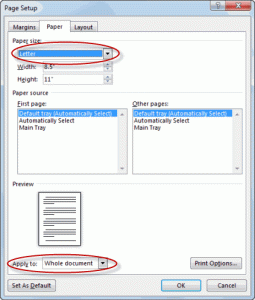
Viewpoint: Imitation – the sincerest type of flattery
Breach of Intellectual Copyright is really a serious issue when huge amounts of cash are placed into creating and safeguarding a company’ online presence. Proprietor of Carbon Voyage, James Swanston, explains what goes on when he uncovered word-for-phrase duplication of his website.
A set up founder wants to think that there’s something unique in what they’re doing. Very occasionally, that is something truly groundbreaking, but generally it really is about carrying out something new and revolutionary. Protecting the intellectual expense is essential, but ultimately it really is all about the way you bring a concept or concept alive. That being said, whenever we create Carbon Voyage, we ensured that trademarks for the logo were attained.
What we weren’t expecting has been to come across someone who acquired stolen all our branding – logos, imagery and site!
At some time in December this past year, somebody noticed our website, right-clicked and selected “Save Web page as” for the whole website, that i guess anyone can perform. We discovered this whenever we did our normal checking of Search engines Analytics and discovered there is some strange traffic to arrive, which then brought us to two websites that were almost similar to ours when it comes to the look of them and wording.
And in addition, I sent them a contact asking if they were conscious that the web site was essentially a primary copy of ours. Instead of get a reaction from the ‘taxi’ firm, I acquired an email from a person at an internet site design and SEO corporation. I was reassured when he mentioned that they would modification the logos and cope with the template service provider who apparently had billed them US$500 for the template. However subsequent email messages between us and them proved to are more unhelpful to the stage that they refused to improve anything unless we supplied them with the initial image files and also suggested that certain of we had marketed the imagery (although they refused to state who).
It had been not only the imagery and logos which were exactly the exact same, however they had copied practically all the written text from our website transforming London for another town. What this meant was they weren’t actually meeting the requirements of the neighborhood transport authorities with regards to compliance. Funnily good enough, they also asked for feedback along the way where their site have been constructed!
Attempting to resolve difficulties amicably is pretty essential, but a spot comes where that’s no longer probable and so you need to look at attempting to enforce your rights. When you find yourself here, it is advisable to try to do just as much digging as feasible to work out where in fact the other celebration stands, and thus where one can actually seek activity. Luckily you can find online tools that assist you to figure out who owns like websites and for that reason who it is possible to contact to obtain some assist from. Even though infringing businesses are notionally located in countries that are extremely supportive of coping with such issues, it generally does not imply that the offenders are usually. Fortunately though, you can find other avenues which can be used with web hosting businesses who are ready to assist.
Having studied regulation myself, I experienced some concept about our privileges and also a few of the remedies open to us. Nevertheless, I was also alert to the expenses of addressing legal issues and that sometimes irrespective of who’s right or incorrect, it could be prohibitively costly to implement this process.
"Breaches of copyright could be tough to pursue, specifically internationally, and legal activities are likely to become costly," states Nina Jensen Hiscock, Commercial Regulation Expert.
Howard Rubin, an intellectual law companion at Bird and Bird, highlights these problems: "Before the web it was not at all hard to law enforcement IP infringements. Publication had been some physical moderate (except broadcast) and business measures were set up that would prevent global infringement. Those actions are actually much more hard. The nature of the web and the mere proven fact that more and more company is transacted because of it implies that infringement is in an easier way to perpetrate and much more difficult to avoid.
"The recent methods used by the FBI in america against Megaupload indicate the push that national governments might take against what quantities to worldwide IP theft. For smaller sized infringements struggling to attract the eye of nationwide authorities it is still left to the ISPs to remove infringing sites. Overall ISPs work responsibly and consistent with current legislation. Nonetheless it is essential that new companies make sure that they will have secured (and will demonstrate) they have guaranteed the IP privileges they would like to enforce if they anticipate ISPs to take optimistic action to create down infringing websites."
In a few respects, the complete incident is fairly amusing as the copying is indeed blatant but it addittionally highlights the down sides in attempting to protect intellectual home across global boundaries.





